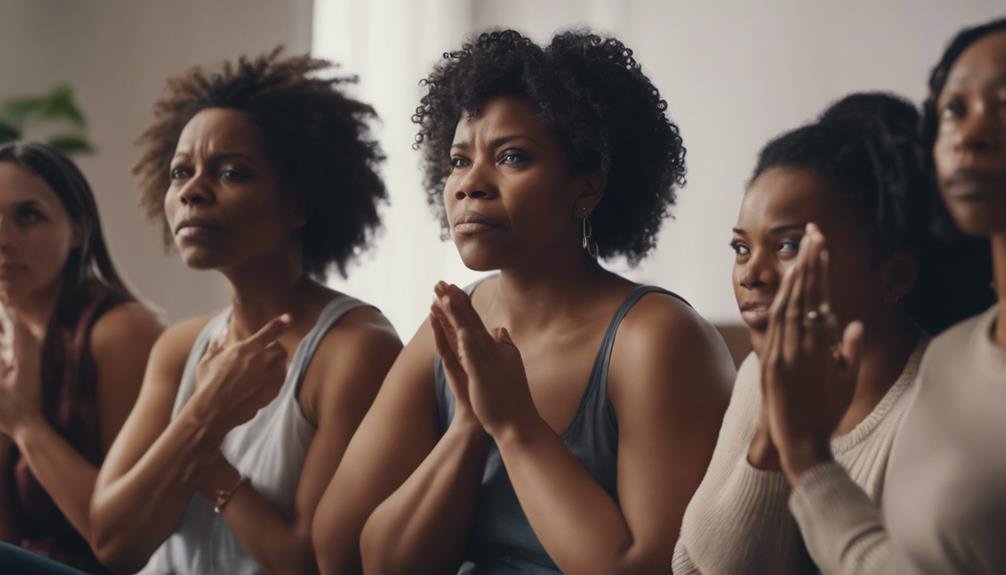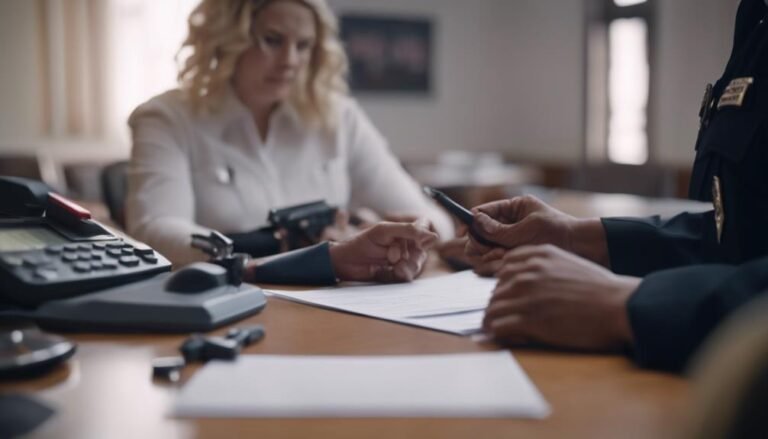To effectively intervene in domestic violence situations, prioritize safety and well-being through tailored strategies. Safety planning, counseling, and legal assistance are essential in empowering survivors. Utilize support groups and economic programs to aid in the recovery process. Collaborate with various stakeholders like shelters and legal services for thorough support. By implementing these interventions, you help survivors regain control and move forward towards healing and empowerment. Remember, a thoughtful and holistic approach can make a significant difference in breaking the cycle of abuse and promoting long-term recovery.
Key Takeaways
- Safety planning is crucial for immediate protection.
- Individual counseling aids emotional healing.
- Legal interventions hold abusers accountable.
- Support groups offer peer encouragement.
- Economic empowerment programs foster independence.
Understanding Domestic Violence
To effectively address domestic violence, it’s essential to first understand the various forms of abuse and their profound impact on individuals and families. The World Health Organization defines domestic violence as a form of intimate partner violence that includes physical, emotional, sexual, and economic abuse.
Physical abuse, such as hitting and restraining, not only causes visible wounds but also inflicts deep emotional scars that can last a lifetime. Emotional abuse, on the other hand, chips away at self-worth and emotional stability, greatly affecting mental health.
Witnessing domestic violence can be just as damaging as experiencing it firsthand. Children exposed to domestic violence may struggle with developmental challenges, emphasizing the critical need for early intervention and support services.
The Importance of Interventions
Understanding the impact of domestic violence highlights the critical importance of effective interventions in promoting safety and healing for individuals and their families. Domestic abuse, whether physical or emotional, can have devastating effects on the lives and health of those involved. Providing support and help through tailored interventions is essential in addressing the immediate and long-term consequences of intimate partner violence.
Interventions play a significant role in breaking the cycle of abuse and empowering individuals to regain control of their lives. By addressing the emotional and psychological impacts of abuse, interventions aim to restore a sense of well-being and safety. Additionally, effective interventions focus on holding perpetrators accountable for their actions while offering resources for victims to seek legal protection and counseling.
Recognizing the significance of interventions in combating domestic violence emphasizes the need for collaborative efforts and evidence-based strategies to guarantee positive outcomes in promoting healing and preventing future instances of abuse.
Effective Intervention Strategies
Safety planning, individual counseling, and legal interventions form the cornerstone of effective strategies for combating domestic violence. These interventions are essential in ensuring the safety and well-being of survivors.
Support groups and economic empowerment programs play a pivotal role in providing survivors with the necessary tools to rebuild their lives and break free from the cycle of abuse. By offering a safe space for sharing experiences and connecting with others who understand, support groups foster healing and empowerment.
Collaborative approaches, evidence-based interventions, and multidisciplinary teams are key in providing holistic support to survivors. Through coordinated efforts between various service providers, survivors receive comprehensive care that addresses their physical, emotional, and legal needs.
Additionally, resources such as hotlines, shelters, legal aid services, and counseling services are crucial components of effective domestic violence intervention strategies. By equipping survivors with the support and resources they need, interventions can help them regain control of their lives and move towards a future free from violence.
Collaborative Approach to Interventions
By fostering collaboration among various stakeholders, a unified and coordinated approach to domestic violence interventions is crucial in addressing the complex needs of survivors. In collaborative interventions, agencies like child protection services, domestic violence shelters, and legal advocates join forces to provide thorough support to victims. This collaborative model guarantees that survivors receive a holistic response to their situations, where information, resources, and expertise are shared among different organizations.
Through this seamless system of care, the safety, well-being, and empowerment of domestic violence survivors are prioritized. By working together, these stakeholders create a network that offers a more effective and efficient response to domestic violence cases. This collaborative approach not only enhances the quality of interventions but also fosters a sense of community and shared responsibility in combating domestic violence.
Together, stakeholders can make a significant impact on the lives of survivors, promoting healing and empowerment.
Empowering Survivors and Promoting Recovery

Empowering survivors of domestic violence and promoting their recovery requires a thorough and collaborative approach that centers on restoring agency and fostering resilience. Victims of domestic violence benefit greatly from empowerment-based approaches that aim to rebuild their sense of control and autonomy. Implementing trauma-informed care is essential in addressing the emotional wounds and promoting resilience throughout the healing process. It’s through survivor empowerment that individuals can start to reclaim their lives and move towards a path of recovery.
Collaborative efforts involving counseling, legal interventions, and multidisciplinary teams play an important role in providing extensive support to survivors. By working together with law enforcement, legal systems, and community organizations, it becomes possible to create a network of assistance that addresses the complex needs of survivors and safeguards their safety. This united front not only aids in the immediate aftermath of domestic violence but also lays a foundation for long-term healing and prevention strategies.
Frequently Asked Questions
What Therapy Is Best for Dv?
For domestic violence survivors, consider trauma-focused therapy, cognitive behavioral therapy, and dialectical behavior therapy. Group counseling offers support and connection. Eye Movement Desensitization and Reprocessing (EMDR) can help with trauma symptoms. These therapies empower healing and growth.
Conclusion
To sum up, remember that intervening in domestic violence situations can make a significant impact on survivors’ lives. By using effective strategies like safety planning, counseling, and legal support, you can empower survivors to break free from abuse and start their journey to healing.
For example, a survivor named Sarah found the courage to leave her abusive partner after receiving support from a domestic violence intervention program. Your compassion and commitment can truly make a difference in someone’s life.







